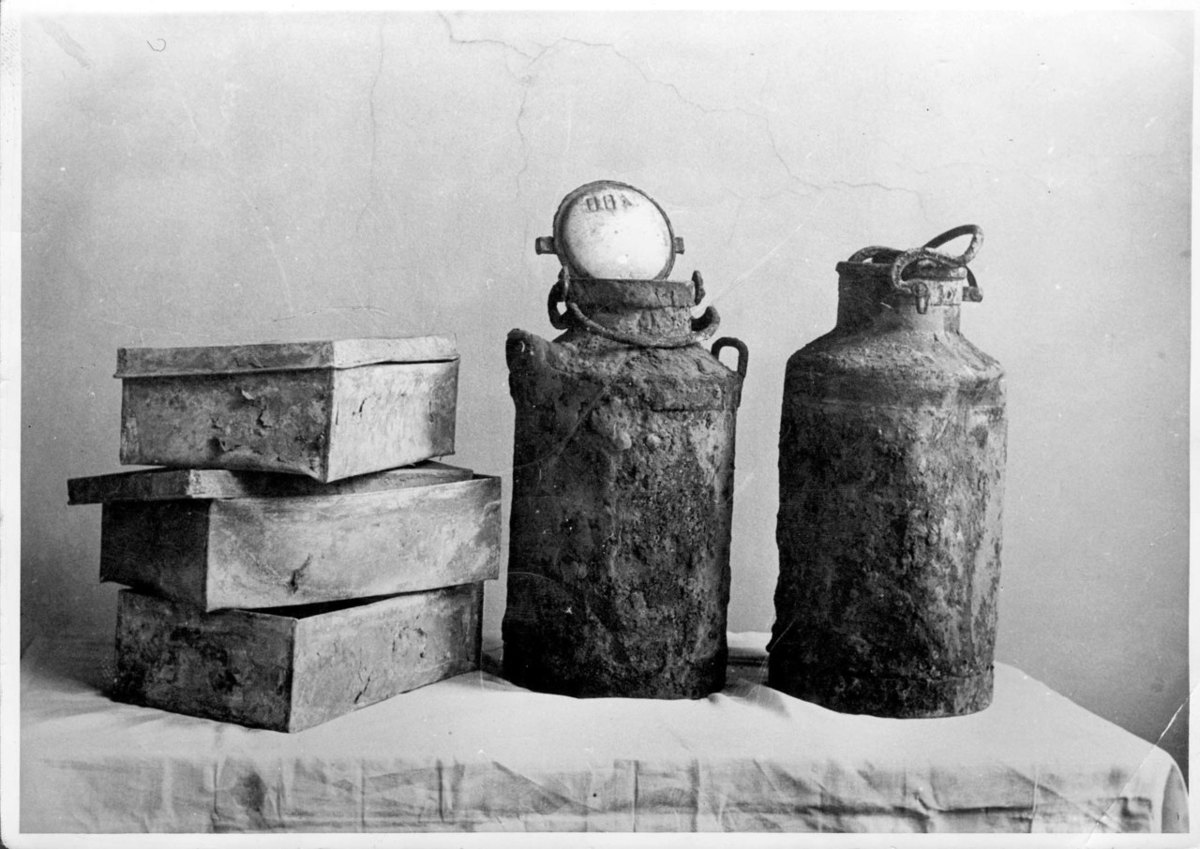Ringelblum Archive (1939–1943)
Abstract
Headed by Dr. Emanuel Ringelblum, the Oyneg Shabbos [Joy of Sabbath] group sought to create a record of Jewish life in the Warsaw ghetto. To this end, the group solicited diaries, memoirs, and other documents from the Jews who lived there. Ringelblum initially envisioned the archive as the eventual basis for a history of the Jewish experience under occupation. When it became clear, however, that ghetto residents were destined for death camps, Ringelblum buried the collected materials, stashing documents in milk cans and metal containers. Over 35,000 pages were unearthed in 1946 and 1950. A third cache has never been found.
Source

Source: The Oneg Shabbat Archive. Yad Vashem Photo Archive, Jerusalem. Available online at: https://photos.yadvashem.org/photo-details.html?language=en&item_id=11671&ind=4
This work is licensed under the Creative Commons Attribution-ShareAlike 4.0 License.
Further Reading
Samuel D. Kassow, Who Will Write Our History? Emanuel Ringelblum, the Warsaw Ghetto, and the Oyneg Shabes Archive. The Helen and Martin Schwartz Lectures in Jewish Studies. Bloomington: Indiana University Press, 2007.
Ringelblum-Archiv, Robert Moses Shapiro, and Tadeusz Epsztein, eds. The Warsaw Ghetto Oyneg Shabes-Ringelblum Archive: Catalog and Guide. English-language edition. Bloomington, IN: Indiana University Press, 2009.
Yad Vashem, The Oneg Shabbat Archives, “Let the World Read and Know,” no date, https://www.yadvashem.org/yv/en/exhibitions/ringelblum/index.asp (last accessed: July 22, 2020)